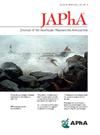Perioperative management of alpha-gal syndrome in bariatric surgery: A case study of venous thromboembolism prophylaxis
IF 2.5
4区 医学
Q3 PHARMACOLOGY & PHARMACY
Journal of the American Pharmacists Association
Pub Date : 2025-05-01
DOI:10.1016/j.japh.2025.102381
引用次数: 0
Abstract
Background
Alpha-gal syndrome (AGS) is a tick-borne allergic condition triggered by galactose-alpha-1,3-galactose, a carbohydrate found in mammalian products. This case report highlights the perioperative challenges of managing AGS in a patient undergoing Roux-en-Y gastric bypass, a common bariatric surgical procedure.
Case summary
A 53-year-old male with AGS was scheduled for robotic-assisted Roux-en-Y gastric bypass with potential hiatal hernia repair. The patient exhibited severe sensitivity to beef but lower reactivity to pork products, complicating the use of porcine-derived heparin for venous thromboembolism prophylaxis. After careful evaluation, low-molecular-weight heparin (enoxaparin) was selected as the anticoagulant, with 40 mg administered preoperatively. The patient underwent surgery without adverse reactions or bleeding complications.
Practice implications
This case underscores the complexities of AGS management in surgical settings, particularly regarding the selection of anticoagulants. While nonporcine alternatives exist, their safety and efficacy in bariatric surgery remain underexplored. The successful use of enoxaparin in this case suggests that a tailored approach, supported by multidisciplinary collaboration, can mitigate risks. This report highlights the need for further research to establish guidelines for anticoagulation in patients with AGS undergoing surgery. Enhanced awareness and individualized care are critical to ensuring optimal outcomes in this unique patient population.
减肥手术中α - gal综合征的围手术期管理:预防静脉血栓栓塞的案例研究。
半乳糖综合征(AGS)是由半乳糖-1,3-半乳糖引起的蜱传过敏性疾病,半乳糖是一种存在于哺乳动物产品中的碳水化合物。本病例报告强调了在接受Roux-en-Y胃旁路术(一种常见的减肥手术)的患者中管理AGS的围手术期挑战。一例53岁男性AGS患者计划行机器人辅助Roux-en-Y胃旁路术并潜在的裂孔疝修补术。患者对牛肉表现出严重的敏感性,但对猪肉产品的反应性较低,这使得使用猪源性肝素预防静脉血栓栓塞变得复杂。经仔细评估,选择低分子肝素(依诺肝素)作为抗凝剂,术前给予40 mg。患者接受手术,无不良反应或出血并发症。实践意义本病例强调了外科环境中AGS管理的复杂性,特别是关于抗凝剂的选择。虽然存在非猪替代品,但其在减肥手术中的安全性和有效性仍未得到充分研究。在这种情况下,依诺肝素的成功使用表明,在多学科合作的支持下,量身定制的方法可以减轻风险。该报告强调需要进一步研究,以建立AGS手术患者抗凝治疗指南。提高认识和个性化护理对于确保这一独特患者群体的最佳结果至关重要。
本文章由计算机程序翻译,如有差异,请以英文原文为准。
求助全文
约1分钟内获得全文
求助全文
来源期刊
CiteScore
3.30
自引率
14.30%
发文量
336
审稿时长
46 days
期刊介绍:
The Journal of the American Pharmacists Association is the official peer-reviewed journal of the American Pharmacists Association (APhA), providing information on pharmaceutical care, drug therapy, diseases and other health issues, trends in pharmacy practice and therapeutics, informed opinion, and original research. JAPhA publishes original research, reviews, experiences, and opinion articles that link science to contemporary pharmacy practice to improve patient care.

 求助内容:
求助内容: 应助结果提醒方式:
应助结果提醒方式:


